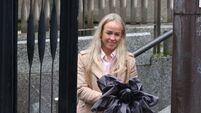Irish people are living in denial when it comes to climate change

Yet, there seems to be a large amount of public apathy and certainly no public clamour for urgent action to deal with the problem.
The other night on RTÉ news, the sight of flower grower Brian Perrott’s field, near













